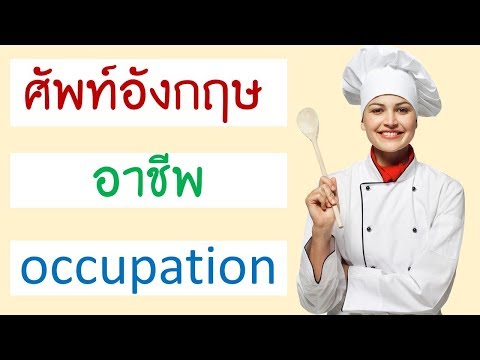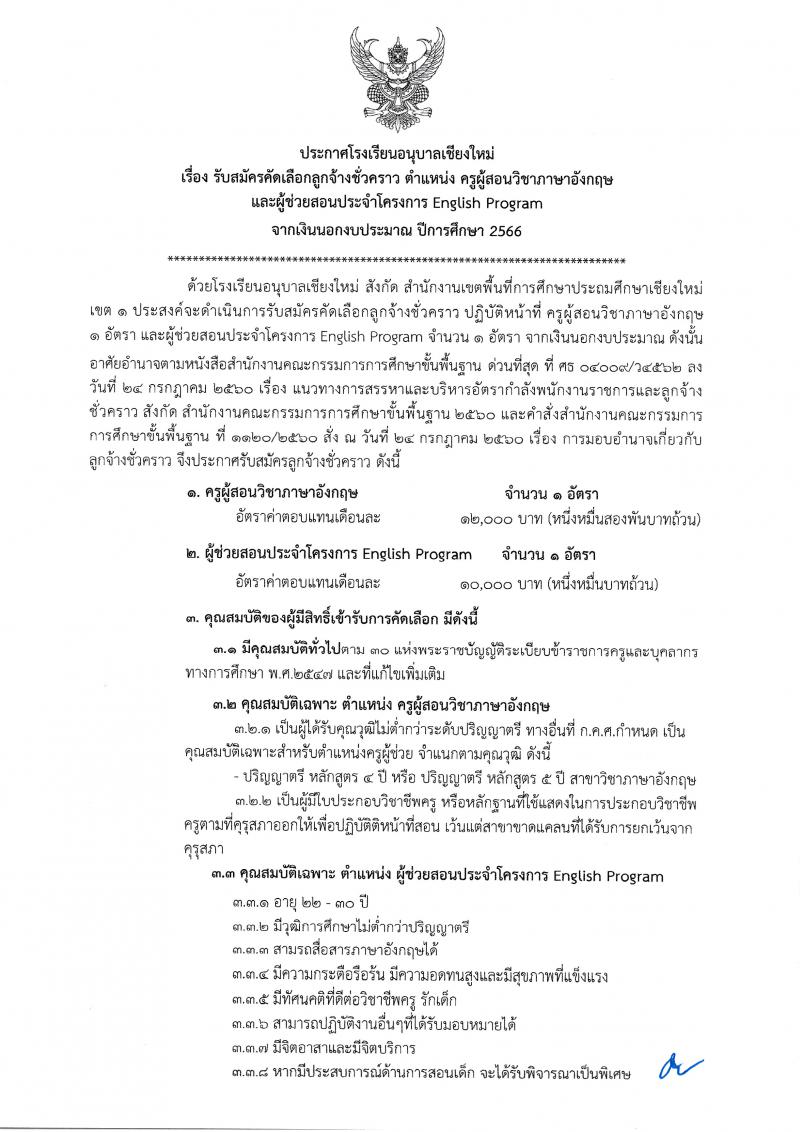ลูกจ้างชั่วคราว ภาษาอังกฤษ: คำแนะนำสำหรับการค้นหางานชั่วคราว
ลูกจ้างชั่วคราว ภาษาอังกฤษ: คำแนะนำสำหรับการค้นหางานชั่วคราว
คำศัพท์ อาชีพ ภาษาอังกฤษ Job And Occupation
Keywords searched by users: ลูกจ้างชั่วคราว ภาษาอังกฤษ ลูกจ้างประจํา ภาษาอังกฤษ, ลูกจ้างรายวัน ภาษาอังกฤษ, พนักงานชั่วคราว คือ, งานชั่วคราว ภาษาอังกฤษ, ลูกจ้าง ภาษาอังกฤษ, พนักงานประจำ ภาษาอังกฤษ, พนักงานสัญญาจ้าง ภาษาอังกฤษ, นายจ้าง ภาษาอังกฤษ
ลูกจ้างชั่วคราว ภาษาอังกฤษ: A Comprehensive Guide
In the realm of employment, the concept of temporary employees, or “ลูกจ้างชั่วคราว” in Thai, plays a significant role. This article aims to delve into the definition, rights, duties, the process of hiring, termination, and related terminology in the context of temporary employment in Thailand. By providing detailed information and insights, this guide aims to assist both employers and employees in navigating the landscape of temporary employment in the Thai language.
1. นิยามลูกจ้างชั่วคราว
1.1 ความหมายของลูกจ้างชั่วคราวในทางกฎหมายแรงงาน
Temporary employment, known as “ลูกจ้างชั่วคราว” in Thai, refers to a work arrangement where an individual is hired for a specific period or task. According to Thai labor laws, temporary employees are engaged for a limited duration, often to meet short-term business needs or address temporary shortages in manpower.
1.2 ลักษณะและลักษณะพิเศษของการจ้างงานชั่วคราว
Temporary employment is characterized by its temporary nature, providing flexibility for employers and employees. Special features may include fixed-term contracts, project-based work, or seasonal employment. Temporary employees may not enjoy the same benefits and job security as permanent staff but often receive higher hourly wages or project-based compensation.
2. สิทธิและหน้าที่ของลูกจ้างชั่วคราว
2.1 สิทธิในการรับค่าจ้างและสวัสดิการ
Temporary employees have the right to receive fair compensation for their services. Thai labor laws dictate that they should be paid according to the agreed-upon terms in their employment contract. However, they may not be entitled to the same benefits, such as health insurance or retirement plans, as permanent employees.
2.2 หน้าที่และความรับผิดชอบของลูกจ้างชั่วคราว
The duties and responsibilities of temporary employees depend on the nature of the job. They are obligated to perform their assigned tasks diligently within the agreed-upon timeframe. However, as their employment is temporary, their responsibilities may be more narrowly defined compared to permanent staff.
3. การจ้างงานลูกจ้างชั่วคราว
3.1 ขั้นตอนและเอกสารที่เกี่ยวข้องในกระบวนการจ้างงาน
Hiring temporary employees involves several steps. Employers need to identify their short-term staffing needs, create a clear job description, and determine the duration of employment. The recruitment process includes advertising the temporary position, interviewing candidates, and selecting the most suitable candidate.
3.2 ข้อกำหนดและเงื่อนไขที่เกี่ยวข้องกับสัญญางานชั่วคราว
Temporary employment contracts should clearly outline the terms and conditions of the employment arrangement. This includes the duration of employment, job responsibilities, compensation, and any specific conditions related to the temporary nature of the position. Both parties should agree to these terms before the commencement of work.
4. การสิ้นสุดสัญญางานลูกจ้างชั่วคราว
4.1 กระบวนการและเงื่อนไขในการสิ้นสุดสัญญา
Temporary employment contracts naturally come to an end upon reaching the agreed-upon duration or completion of the specified task. Employers should adhere to the termination procedures outlined in the contract and provide any agreed-upon notice. Additionally, termination may occur if the temporary employee breaches the terms of the contract or engages in misconduct.
4.2 สิทธิที่ลูกจ้างชั่วคราวมีเมื่อสิ้นสุดสัญญา
Upon the termination of the contract, temporary employees have rights regarding their final payment, including any outstanding salary, overtime pay, or unused vacation days. Employers must settle these financial matters promptly to ensure a fair and legal conclusion to the employment relationship.
5. คำศัพท์ที่เกี่ยวข้อง
5.1 คำศัพท์และคำที่ใช้ในบทความเพื่อเสริมความเข้าใจ
- ลูกจ้างประจํา ภาษาอังกฤษ (Permanent employee)
- ลูกจ้างรายวัน ภาษาอังกฤษ (Daily wage worker)
- พนักงานชั่วคราว คือ (Temporary employee definition)
- งานชั่วคราว ภาษาอังกฤษ (Temporary job)
- ลูกจ้าง ภาษาอังกฤษ (Employee)
- พนักงานประจำ ภาษาอังกฤษ (Permanent staff)
- พนักงานสัญญาจ้าง ภาษาอังกฤษ (Contractual employee)
- นายจ้าง ภาษาอังกฤษ (Employer)
5.2 คำศัพท์ทางกฎหมายแรงงานที่น่าสนใจ
- สัญญางาน (Employment contract)
- ค่าจ้าง (Wage)
- สวัสดิการ (Benefits)
- การสิ้นสุดสัญญา (Contract termination)
- การลงนาม (Signing)
- คำเตือน (Warning)
- ค่าตอบแทน (Compensation)
6. แหล่งข้อมูลและอ้างอิง
For further information and legal details regarding temporary employment in Thailand, readers can refer to the following sources:
- Ministry of Labor – Dictionary of Labor Terms (English)
- Longdo Dictionary – ลูกจ้างชั่วคราว
- Sanook Dictionary – ลูกจ้างชั่วคราว
- Pantip Forum – ลูกจ้างชั่วคราว
This comprehensive guide aims to empower both employers and temporary employees with the knowledge needed to navigate the complexities of temporary employment in Thailand. Understanding the rights, duties, and legal aspects of temporary employment is crucial for fostering a fair and productive work environment.
Categories: สรุป 62 ลูกจ้างชั่วคราว ภาษาอังกฤษ

Temporary Employee. ลูกจ้างชั่วคราว ลูกจ้างซึ่งรับจ้างทำงานโดยมีกำหนดระยะเวลา หรือเป็นการชั่วคราว โดยทั่วไปจะเป็นการจ้าง ในกรณีที่มีงานเร่งด่วน หรือมีปริมาณงานที่ต้องทำมากในช่วงเวลานั้น การจ้างงานจะสิ้นสุดลง เมื่องานนั้นเสร็จสิ้น ลูกจ้างชั่วคราวไม่มีการสะสมอายุงานหรือคำนึงถึงอาวุโส ลูกจ้างชั่วคราว
ลูกจ้างประจํา ภาษาอังกฤษ
ขอบคุณที่ให้โอกาสเขียนบทความเกี่ยวกับ ลูกจ้างประจำ ภาษาอังกฤษ! ในบทความนี้จะเน้นอธิบายและให้ข้อมูลอย่างละเอียดเกี่ยวกับเรื่องนี้เพื่อช่วยเพิ่มความเข้าใจและประโยชน์ให้กับผู้อ่านที่สนใจเรื่องนี้
ลูกจ้างประจำ ภาษาอังกฤษ: แนวทางและข้อมูลอย่างละเอียด
1. ลูกจ้างประจำคืออะไร?
ลูกจ้างประจำเป็นผู้ที่ได้รับจ้างทำงานในบริษัทหรือองค์กรต่าง ๆ โดยมีสัญญาทำงานแบบเป็นประจำ ซึ่งมีสิทธิและหน้าที่ตามกฎหมายแรงงานของแต่ละประเทศ มักจะมีการจ่ายเงินเดือนและสวัสดิการต่าง ๆ ตามนโยบายของบริษัท
2. ความแตกต่างระหว่างลูกจ้างประจำกับลูกจ้างชั่วคราว
- ลูกจ้างประจำ มักจะมีสัญญาทำงานยาวนาน มีความมั่นคงและสิทธิประโยชน์มากกว่า ซึ่งมักจะได้รับการปกป้องตามกฎหมายแรงงาน
- ลูกจ้างชั่วคราว มักจะทำงานเป็นช่วงเวลาที่กำหนดไว้ล่วงหน้า มักไม่ได้รับสวัสดิการเหมือนลูกจ้างประจำ
3. สิทธิและความรับผิดชอบของลูกจ้างประจำ
ลูกจ้างประจำมีสิทธิและความรับผิดชอบต่าง ๆ ตามกฎหมายแรงงานของแต่ละประเทศ เช่น สิทธิในการพักผ่อน, การได้รับการชดเชยในกรณีที่ต้องการลากิจ, และการปกป้องตนเองในกรณีของการเลิกจ้างที่ไม่เป็นธรรม
4. ลูกจ้างประจำในวงการอาชีพต่าง ๆ
ในวงการต่าง ๆ ลูกจ้างประจำมีลักษณะและการปฏิบัติงานที่แตกต่างกันไป เช่น ในวงการเทคโนโลยีมักมีการทำงานอยู่ในรูปแบบโครงการ หรือในวงการสื่อสารมักมีการทำงานเป็นกะ
5. การค้นหางานและสิทธิของลูกจ้างประจำ
การค้นหางานและเข้าทำงานในฐานะลูกจ้างประจำมีความสำคัญ เนื่องจากต้องเข้าใจเงื่อนไขของสัญญาการทำงาน และสิทธิต่าง ๆ ที่จะได้รับ เพื่อปกป้องตนเองและเพื่อประโยชน์ของตนเอง
FAQ เกี่ยวกับลูกจ้างประจำ ภาษาอังกฤษ
Q1: ลูกจ้างประจำมีสิทธิในการลากิจเป็นอย่างไร?
A1: สิทธิในการลากิจของลูกจ้างประจำมักจะได้รับการกำหนดโดยกฎหมายแรงงานของแต่ละประเทศ โดยมักจะมีสิทธิในการลากิจตามระยะเวลาการทำงานที่ผ่านมา เช่น สิทธิในการลาพักร้อนหรือลาป่วยตามจำนวนวันที่ทำงาน
Q2: การเลิกจ้างของลูกจ้างประจำมีเงื่อนไขอะไรบ้าง?
A2: เงื่อนไขการเลิกจ้างของลูกจ้างประจำต่างไปตามกฎหมายแรงงานและสัญญาที่ทำไว้ บางประเทศอาจกำหนดให้มีการแจ้งล่วงหน้าก่อนการเลิกจ้างหรือการชดใช้ตามกฎหมายในกรณีที่เลิกจ้างไม่เป็นธรรม
Q3: มีวิธีการค้นหางานลูกจ้างประจำที่ดีอย่างไร?
A3: การค้นหางานลูกจ้างประจำสามารถทำได้ผ่านเว็บไซต์หางานออนไลน์, เครือข่ายทางสังคม, หรือที่ตลาดงานจัดงานต่าง ๆ อีกทั้งควรศึกษาข้อมูลเกี่ยวกับบริษัทและตำแหน่งงานที่สนใจอย่างละเอียด
สรุป
ลูกจ้างประจำเป็นกลุ่มงานที่มีความสำคัญในวงการแรงงานและการจ้างงาน มีสิทธิและความรับผิดชอบตามกฎหมายแรงงานแต่ละประเทศ การทราบและเข้าใจเกี่ยวกับสิทธิและเงื่อนไขการทำงานเป็นสิ่งสำคัญที่ช่วยให้ลูกจ้างประจำมีความมั่นคงและปกป้องตนเองได้
แหล่งข้อมูลเพิ่มเติม
- Ministry of Labor (สำนักงานกระทรวงแรงงาน)
- Longdo Dictionary
- Lexitron Dictionary
- Sanook Dictionary
- Pantip Forum (กระทู้ความรู้)
หวังว่าบทความนี้จะเป็นประโยชน์และเสริมความรู้ให้กับผู้ที่สนใจและมีความสนใจในเรื่องของลูกจ้างประจำ ภาษาอังกฤษ!
ลูกจ้างรายวัน ภาษาอังกฤษ
ลูกจ้างรายวัน ภาษาอังกฤษ: A Comprehensive Guide to Daily Hires in Thailand
In the realm of employment, the concept of daily hires, or “ลูกจ้างรายวัน” in Thai, has gained prominence in recent years. This employment arrangement provides flexibility for both employers and employees, but it also raises questions about job security and workers’ rights. In this article, we delve into the intricacies of daily hires in Thailand, exploring the legal framework, common practices, and the implications for workers.
Understanding ลูกจ้างรายวัน (Daily Hires):
Daily hires refer to a type of employment where workers are engaged on a daily basis, often without a long-term contract. This arrangement allows employers to respond quickly to fluctuating workloads and temporary needs. While it offers flexibility, it also presents challenges for workers who may face uncertainty regarding job stability and benefits.
Legal Framework for Daily Hires in Thailand:
The legal aspects of daily hires in Thailand are governed by labor laws set forth by the Ministry of Labor. According to the official website of the Ministry of Labor, temporary employment falls under specific regulations, ensuring that daily hires are not exploited and are entitled to basic labor rights.
To gain a deeper understanding of the legalities, it is crucial to refer to the official dictionary of the Ministry of Labor, which provides definitions and explanations related to temporary employment. This resource can serve as a guide for both employers and employees, outlining their rights and responsibilities in the context of daily hires.
Common Terms and Concepts in ลูกจ้างรายวัน:
To navigate the world of daily hires in Thailand, it is essential to be familiar with common terms and concepts. Longdo Dictionary is a valuable resource for language understanding, offering translations and explanations related to temporary employment. This tool can be particularly useful for foreign workers seeking employment in Thailand or Thai workers looking to comprehend the intricacies of daily hires in English.
Practical Insights into ลูกจ้างรายวัน:
For a practical perspective on daily hires, the Lexitron dictionary provides real-world examples and usage of terms related to temporary employment. Understanding how these terms are used in various contexts can help both employers and employees navigate the practical aspects of daily hires.
Community Discussions on ลูกจ้างรายวัน:
To gain insights from the experiences of others, the Pantip forum offers a platform for community discussions on topics related to daily hires. Engaging in these conversations can provide valuable perspectives, tips, and advice for individuals navigating the world of temporary employment in Thailand.
FAQ Section:
Q1: Are daily hires entitled to labor rights and benefits?
A1: Yes, daily hires in Thailand are entitled to basic labor rights and benefits, as stipulated by the Ministry of Labor. It is essential for both employers and employees to be aware of these rights to ensure fair and legal employment practices.
Q2: How does the daily hiring process work in Thailand?
A2: The daily hiring process typically involves a daily agreement between the employer and the employee. While it offers flexibility, it is crucial to adhere to the legal framework set forth by the Ministry of Labor to ensure a fair and transparent employment relationship.
Q3: Can daily hires become permanent employees?
A3: In some cases, daily hires may transition to permanent employment based on mutual agreement between the employer and the employee. However, it is essential to clarify such arrangements and ensure compliance with labor laws.
Q4: What rights do daily hires have in case of termination?
A4: Daily hires have rights in case of termination, including notice periods and severance pay. Employers must adhere to these regulations, and employees should be aware of their rights to seek legal recourse if necessary.
In conclusion, navigating the realm of daily hires in Thailand requires a thorough understanding of the legal framework, language nuances, and practical aspects. By leveraging available resources and engaging in community discussions, both employers and employees can contribute to a fair and transparent employment landscape.
พนักงานชั่วคราว คือ
ข้อมูลเกี่ยวกับ พนักงานชั่วคราว คือ เป็นเรื่องที่มีความหลากหลายและสำคัญในสาขาการงานและกฎหมายแรงงาน ในบทความนี้เราจะสำรวจและอธิบายเกี่ยวกับคำนิยามของ พนักงานชั่วคราว คือ อย่างละเอียด เพื่อให้เข้าใจเกี่ยวกับบทบาทและความสำคัญของพนักงานชั่วคราวในสังคมและธุรกิจในปัจจุบัน
พนักงานชั่วคราว คือ?
พนักงานชั่วคราว หรือ Temporary Employee เป็นบุคคลที่ได้รับการจ้างงานเพื่อทำงานในระยะเวลาที่มักจะมีจำกัด โดยมักจะมีสัญญาจ้างงานระยะสั้นหรือไม่แน่นอน เช่น งานโครงการ งานซ่อมบำรุง หรืองานที่มีความต้องการชั่วคราว โดยมักจะไม่ได้รับสิทธิประโยชน์หรือสวัสดิการที่ครอบคลุมอย่างเต็มที่เหมือนกับพนักงานประจำ
บทบาทและความสำคัญ
บทบาทของพนักงานชั่วคราว
- ช่วยให้ธุรกิจสามารถรับมือกับความต้องการงานชั่วคราวที่ไม่แน่นอนได้
- ให้ความยืดหยุ่นในการจัดการแรงงานตามความต้องการของธุรกิจในขณะที่มีความต้องการสูง
- เพิ่มประสิทธิภาพของการทำงานในโครงการหรืองานที่มีระยะเวลาจำกัด
ความสำคัญของพนักงานชั่วคราว
- ช่วยให้ธุรกิจลดค่าใช้จ่ายในการจ้างงานในระยะสั้น
- เพิ่มความยืดหยุ่นในการปรับเปลี่ยนกำลังคนตามความต้องการของธุรกิจ
- สามารถให้ความช่วยเหลือในการดำเนินการงานที่มีระยะเวลาสั้นๆ และมีความต้องการมากขึ้น
สิทธิและความคุ้มครองของพนักงานชั่วคราว
พนักงานชั่วคราวมักจะไม่ได้รับสิทธิและสวัสดิการเท่าเทียมกับพนักงานประจำ อย่างไรก็ตามตามกฎหมายแรงงานบางประการพนักงานชั่วคราวก็มีสิทธิบ certain rights และประโยชน์บางประการ เช่น
- สิทธิในการรับค่าจ้างตามระยะเวลาที่ทำงานจริง
- การคุ้มครองด้านความปลอดภัยและสุขภาพในสถานที่ทำงาน
FAQ
1. พนักงานชั่วคราวแตกต่างจากพนักงานประจำอย่างไร?
พนักงานชั่วคราวมักจะได้รับการจ้างงานในระยะเวลาที่มีข้อจำกัด โดยมักจะไม่ได้รับสิทธิและสวัสดิการเท่าเทียมกับพนักงานประจำที่มีสัญญาจ้างงานแบบถาวรและคงที่
2. พนักงานชั่วคราวมีสิทธิในการรับค่าจ้างอย่างไร?
พนักงานชั่วคราวมีสิทธิในการรับค่าจ้างตามระยะเวลาที่ทำงานจริงตามที่ได้ตกลงกันในสัญญาจ้างงาน โดยไม่น้อยกว่ามูลค่าตามกฎหมายแรงงาน
3. ธุรกิจมีประโยชน์จากการจ้างพนักงานชั่วคราวอย่างไร?
การจ้างพนักงานชั่วคราวช่วยให้ธุรกิจสามารถปรับตัวตามความต้องการของงานและลดค่าใช้จ่ายในการจ้างงานในระยะสั้นได้ โดยมีความยืดหยุ่นในการเพิ่มหรือลดกำลังคนตามความต้องการของธุรกิจ
4. พนักงานชั่วคราวมีสิทธิในการคุ้มครองด้านความปลอดภัยและสุขภาพในที่ทำงานหรือไม่?
ในกรณีของการทำงานพนักงานชั่วคราวมีสิทธิในการคุ้มครองด้านความปลอดภัยและสุขภาพในที่ทำงานตามกฎหมายแรงงาน ซึ่งธุรกิจต้องให้ความสำคัญและป้องกันความเสี่ยงให้พนักงานชั่วคราวเหมือนกับพนักงานประจำ
บทความนี้สรุปถึงความสำคัญและบทบาทของ พนักงานชั่วคราว โดยมองผ่านมุมมองของสังคมแรงงานและสถานประกอบการ เพื่อให้เกิดความเข้าใจที่ลึกซึ้งและครอบคลุมเกี่ยวกับเรื่องนี้ในระดับที่เป็นประโยชน์สูงสุดสำหรับผู้ที่สนใจและมีความเกี่ยวข้องกับเรื่องนี้ในทุกๆ ด้านของความรู้และความเข้าใจของกฎหมายแรงงานและการจัดการทรัพยากรมนุษย์ในองค์กรผู้ที่สนใจในเรื่องนี้จะสามารถศึกษาข้อมูลเพิ่มเติมและเข้าใจความสำคัญของพนักงานชั่วคราวได้อย่างชัดเจนและถูกต้องจากข้อมูลที่ได้รับในบทความนี้ โดยสามารถเข้าถึงและประยุกต์ใช้ได้ตามความเหมาะสมของแต่ละเหตุการณ์และภาวะที่เกิดขึ้นในหลายๆ กรณีในชีวิตจริงในสถานประกอบการและสังคมได้อย่างเหมาะสม
รายละเอียด 7 ลูกจ้างชั่วคราว ภาษาอังกฤษ


See more here: cacanh24.com
Learn more about the topic ลูกจ้างชั่วคราว ภาษาอังกฤษ.
- Temporary Employee – กรมสวัสดิการและคุ้มครองแรงงาน
- ลูกจ้างชั่วคราว แปลว่าอะไร ดูความหมาย ตัวอย่างประโยค หมายความ …
- *ลูกจ้างชั่วคราว* แปลว่าอะไร ดูความหมาย ตัวอย่างประโยค …
- ลูกจ้างชั่วคราว คืออะไร แปลว่าอะไร ตัวอย่างประโยค …
- ลูกจ้างชั่วคราว, พนักงานราชการ, ข้าราชการ ใช้ภาษาอังกฤษว่า …
- ลูกจ้างชั่วคราว – Thai / English dictionary meaning – ภาษาอังกฤษ …
See more: https://cacanh24.com/category/local blog





